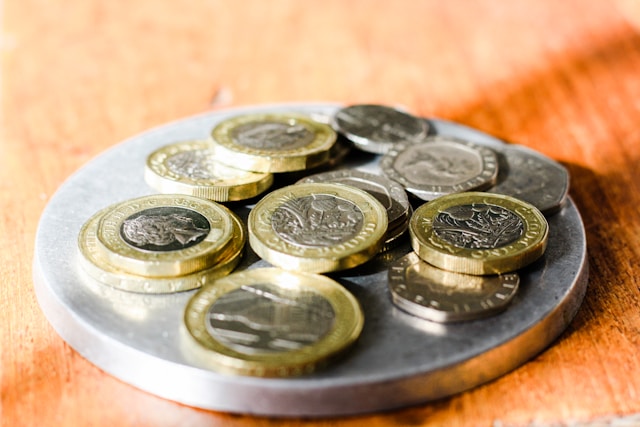Visa Stock Analysis: Is Visa a Strong Opportunity Ahead of Q4 Earnings?
$325.48
28 Jan 2026, 19:25


The UK inflation rate has risen to 2.6% in the year ending November 2024, marking the highest level in eight months. This increase follows two consecutive months of rising prices, driven mainly by higher fuel and clothing costs.
Main Drivers of Inflation: Fuel, Clothing, and Event Ticket Prices
Official data shows that the main factors behind the inflation rise include higher fuel prices, which continue to impact consumers, along with increased costs for clothing. Ticket prices for concerts, gigs, and theater performances also contributed to the inflation uptick.
Grant Fitzner, Chief Economist at the Office for National Statistics (ONS), explained that the rise in inflation is partly due to the fact that fuel and clothing prices were lower in the previous year, which made the current increase more noticeable. Airfares traditionally drop during this period, but in November, they experienced their largest drop since records began, which helped partially offset the overall inflation increase.
Chancellor Reacts to Rising Inflation: Cost of Living Concerns
Chancellor Rachel Reeves acknowledged that families continue to feel the pressure from the rising cost of living. She emphasized that the current inflation figures highlight the ongoing struggles of working people in the UK. Reeves pledged to take action to help put more money in the pockets of ordinary workers.
While inflation remains higher than earlier in 2024, it is still significantly lower than its peak in late 2022. Over the past two years, inflation has steadily decreased, dipping below the Bank of England’s 2% target in September before rising again in October.
UK Inflation Forecast: 2.6% in 2025
In its latest forecast, the UK’s official forecasting body projected that inflation would rise to 2.6% by 2025, partly due to the impact of the government’s recent budget measures. Despite recent increases, inflation is still far from the 10% highs seen in late 2022.
Shadow Chancellor Criticizes Government Economic Policies
Shadow Chancellor Mel Stride criticized the government's economic decisions, arguing that the policies have led to higher inflation and increased costs for consumers. He warned that these rising costs could keep mortgage rates high for longer, further squeezing household budgets.
Inflation Impact on Consumer Goods: Rising Prices for Food, Housing, and Footwear
Prices for food, non-alcoholic drinks, alcohol, tobacco, and footwear all saw faster growth in November. Additionally, a broader measure of inflation, which includes housing and household services like rent, showed a 3.5% increase over the past year.
Sarah Coles, Head of Personal Finance at Hargreaves Lansdown, described the current inflation situation as an "unwelcome guest" that continues to drain household budgets. She noted that while inflation may fall slightly in December, the longer-term outlook remains uncertain.
Wage Increases and Economic Pressures in 2024
Wages for UK workers are set to rise in April 2025 due to changes announced in the government's October Budget. These wage increases could impact inflation further, as businesses adjust to higher labor costs.
Will the Bank of England Cut Interest Rates?
As inflation remains elevated, the Bank of England faces a difficult decision regarding interest rates. Recent figures show that the UK economy contracted in September and October, which might normally prompt the Bank to lower interest rates. Lower rates would ease the financial burden on borrowers, including homeowners with mortgages, and potentially stimulate economic growth.
However, the latest inflation data, coupled with stronger-than-expected wage growth, suggests that the Bank may need to keep interest rates at 4.75% for a longer period to prevent inflation from rising again. Many economists now believe that interest rate cuts will come more slowly in 2025 than initially anticipated.
Inflation Outlook for 2025: What to Expect
Economists predict that inflation will dip slightly in December 2024 but may rise again in January 2025. However, by the end of 2025, inflation is expected to fall back toward the Bank of England’s 2% target, providing some relief to consumers and businesses alike.
Key Takeaways:
Source: bbc.co.uk